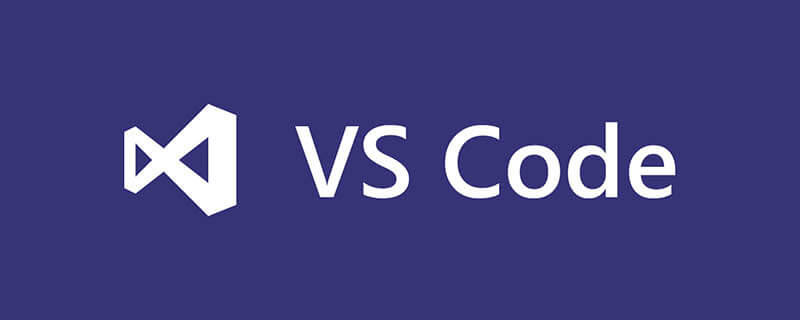
This article discusses how to simulate the concept of interfaces in object-oriented programming in C language. We will take the calculation of vehicle prices as an example, implement them in Java and C languages respectively, compare the differences between the two languages, and show how to implement the basic functions of the interface in C.
Java implementation:
In Java, interface is defined using the interface keyword, and classes implement interfaces through implements keyword. The sample code is as follows:
<code class="language-java">interface Vehicle { int price(); } class Car implements Vehicle { private final int speed; public Car(int speed) { this.speed = speed; } @Override public int price() { return speed * 60; } } class Motorcycle implements Vehicle { private final int cc; public Motorcycle(int cc) { this.cc = cc; } @Override public int price() { return cc * 10; } } public class Main { public static void printVehiclePrice(Vehicle vehicle) { System.out.println("$" vehicle.price() ".00"); } public static void main(String[] args) { Car car = new Car(120); Motorcycle motorcycle = new Motorcycle(1000); printVehiclePrice(car); printVehiclePrice(motorcycle); } }</code>
C language implementation:
There is no direct interface mechanism in C language. We can simulate the behavior of an interface by enumerating types, structures, and function pointers.
First define the enumeration type to represent the vehicle type:
<code class="language-c">typedef enum { VEHICLE_CAR, VEHICLE_MOTORCYCLE } VehicleType;</code>
Then define the vehicle structure, including type information and function pointers:
<code class="language-c">typedef struct { VehicleType type; int (*price)(void*); // 函数指针,指向价格计算函数} Vehicle;</code>
Next, realize the structure of automobile and motorcycle:
<code class="language-c">typedef struct { VehicleType type; int speed; } Car; typedef struct { VehicleType type; int cc; } Motorcycle;</code>
The corresponding initialization and price calculation functions:
<code class="language-c">Car* car_init(int speed) { Car* car = malloc(sizeof(Car)); car->type = VEHICLE_CAR; car->speed = speed; return car; } int car_price(void* car) { return ((Car*)car)->speed * 60; } Motorcycle* motorcycle_init(int cc) { Motorcycle* motorcycle = malloc(sizeof(Motorcycle)); motorcycle->type = VEHICLE_MOTORCYCLE; motorcycle->cc = cc; return motorcycle; } int motorcycle_price(void* motorcycle) { return ((Motorcycle*)motorcycle)->cc * 10; }</code>
Finally, implement the vehicle_price function and call different price calculation functions according to the vehicle type:
<code class="language-c">int vehicle_price(Vehicle* vehicle) { switch (vehicle->type) { case VEHICLE_CAR: return car_price((Car*)vehicle); case VEHICLE_MOTORCYCLE: return motorcycle_price((Motorcycle*)vehicle); default: return 0; } } void print_vehicle_price(Vehicle* vehicle) { printf("$%d.00\n", vehicle_price(vehicle)); } int main() { Vehicle car_v = {VEHICLE_CAR, car_price}; ((Car*)&car_v)->speed = 120; // 强制类型转换Vehicle motorcycle_v = {VEHICLE_MOTORCYCLE, motorcycle_price}; ((Motorcycle*)&motorcycle_v)->cc = 1000; // 强制类型转换print_vehicle_price(&car_v); print_vehicle_price(&motorcycle_v); free((Car*)&car_v); free((Motorcycle*)&motorcycle_v); return 0; }</code>
This C language implementation simulates the behavior of interfaces, but requires manual management of memory and type conversion, which is more complex than Java's interface mechanism. This approach improves the maintainability and readability of the code when dealing with complex data structures, such as abstract syntax trees (AST).
The above is the detailed content of Object-oriented in C? Implementing interfaces from scratch. For more information, please follow other related articles on the PHP Chinese website!
 (超详细)VScode中配置C语言环境的方法Dec 05, 2022 pm 07:05 PM
(超详细)VScode中配置C语言环境的方法Dec 05, 2022 pm 07:05 PMVScode中怎么配置C语言环境?下面本篇文章给大家介绍一下VScode配置C语言环境的方法(超详细),希望对大家有所帮助!
 c语言中node是什么意思Jul 06, 2022 pm 03:51 PM
c语言中node是什么意思Jul 06, 2022 pm 03:51 PM在C语言中,node是用于定义链表结点的名称,通常在数据结构中用作结点的类型名,语法为“struct Node{...};”;结构和类在定义出名称以后,直接用该名称就可以定义对象,C语言中还存在“Node * a”和“Node* &a”。
 c语言怎么将数字转换成字符串Jan 04, 2023 pm 03:20 PM
c语言怎么将数字转换成字符串Jan 04, 2023 pm 03:20 PMc语言将数字转换成字符串的方法:1、ascii码操作,在原数字的基础上加“0x30”,语法“数字+0x30”,会存储数字对应的字符ascii码;2、使用itoa(),可以把整型数转换成字符串,语法“itoa(number1,string,数字);”;3、使用sprintf(),可以能够根据指定的需求,格式化内容,存储至指针指向的字符串。
 c语言开根号运算符是什么Mar 06, 2023 pm 02:39 PM
c语言开根号运算符是什么Mar 06, 2023 pm 02:39 PM在c语言中,没有开根号运算符,开根号使用的是内置函数“sqrt()”,使用语法“sqrt(数值x)”;例如“sqrt(4)”,就是对4进行平方根运算,结果为2。sqrt()是c语言内置的开根号运算函数,其运算结果是函数变量的算术平方根;该函数既不能运算负数值,也不能输出虚数结果。
 c语言数组如何初始化Jan 04, 2023 pm 03:36 PM
c语言数组如何初始化Jan 04, 2023 pm 03:36 PMC语言数组初始化的三种方式:1、在定义时直接赋值,语法“数据类型 arrayName[index] = {值};”;2、利用for循环初始化,语法“for (int i=0;i<3;i++) {arr[i] = i;}”;3、使用memset()函数初始化,语法“memset(arr, 0, sizeof(int) * 3)”。
 c语言合法标识符的要求是什么Aug 27, 2020 pm 01:47 PM
c语言合法标识符的要求是什么Aug 27, 2020 pm 01:47 PMc语言合法标识符的要求是:1、标识符只能由字母(A~Z, a~z)、数字(0~9)和下划线(_)组成;2、第一个字符必须是字母或下划线,不能是数字;3、标识符中的大小写字母是有区别的,代表不同含义;4、标识符不能是关键字。
 c语言中源文件编译后生成什么文件Nov 23, 2022 pm 07:44 PM
c语言中源文件编译后生成什么文件Nov 23, 2022 pm 07:44 PMc语言编译后生成“.OBJ”的二进制文件(目标文件)。在C语言中,源程序(.c文件)经过编译程序编译之后,会生成一个后缀为“.OBJ”的二进制文件(称为目标文件);最后还要由称为“连接程序”(Link)的软件,把此“.OBJ”文件与c语言提供的各种库函数连接在一起,生成一个后缀“.EXE”的可执行文件。
 c语言中*p和p的区别是什么Nov 29, 2022 pm 06:03 PM
c语言中*p和p的区别是什么Nov 29, 2022 pm 06:03 PM区别:1、表示的含义不同,“*p”表示此指针指向的内存地址中存放的内容,“p”表示一个指针变量的名字,指此指针变量所指向的内存地址。2、输出的格式不同,“*p”输出的一般是一个和指针类型一致的变量或者常量,“p”输出的是一个16进制数, 输出一个指针的地址。3、功能不同,“*p”是让程序去那个地址取出数据,“p”用于存放的是地址。


Hot AI Tools

Undresser.AI Undress
AI-powered app for creating realistic nude photos

AI Clothes Remover
Online AI tool for removing clothes from photos.

Undress AI Tool
Undress images for free

Clothoff.io
AI clothes remover

AI Hentai Generator
Generate AI Hentai for free.

Hot Article

Hot Tools

SAP NetWeaver Server Adapter for Eclipse
Integrate Eclipse with SAP NetWeaver application server.

PhpStorm Mac version
The latest (2018.2.1) professional PHP integrated development tool

DVWA
Damn Vulnerable Web App (DVWA) is a PHP/MySQL web application that is very vulnerable. Its main goals are to be an aid for security professionals to test their skills and tools in a legal environment, to help web developers better understand the process of securing web applications, and to help teachers/students teach/learn in a classroom environment Web application security. The goal of DVWA is to practice some of the most common web vulnerabilities through a simple and straightforward interface, with varying degrees of difficulty. Please note that this software

SublimeText3 English version
Recommended: Win version, supports code prompts!

ZendStudio 13.5.1 Mac
Powerful PHP integrated development environment






